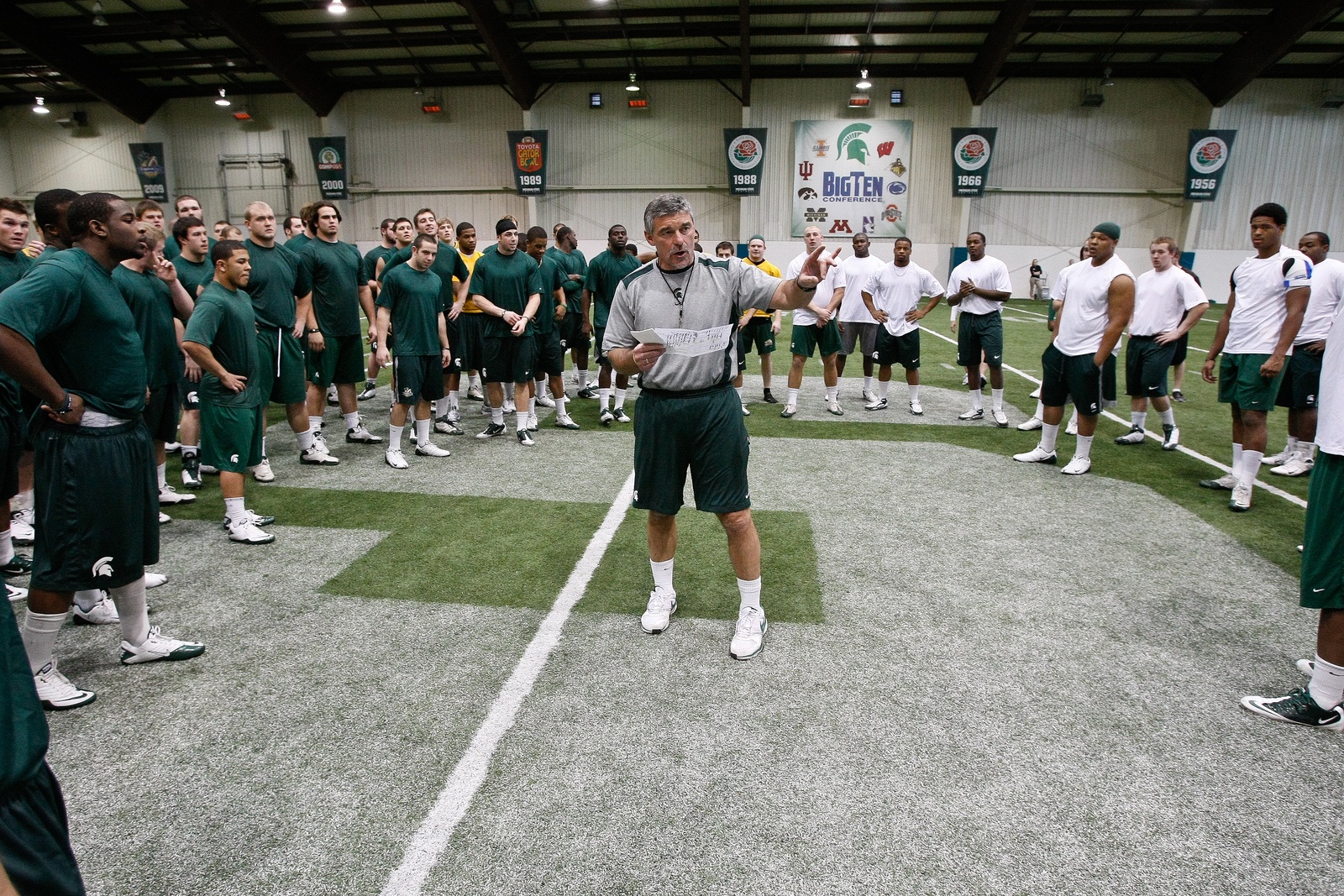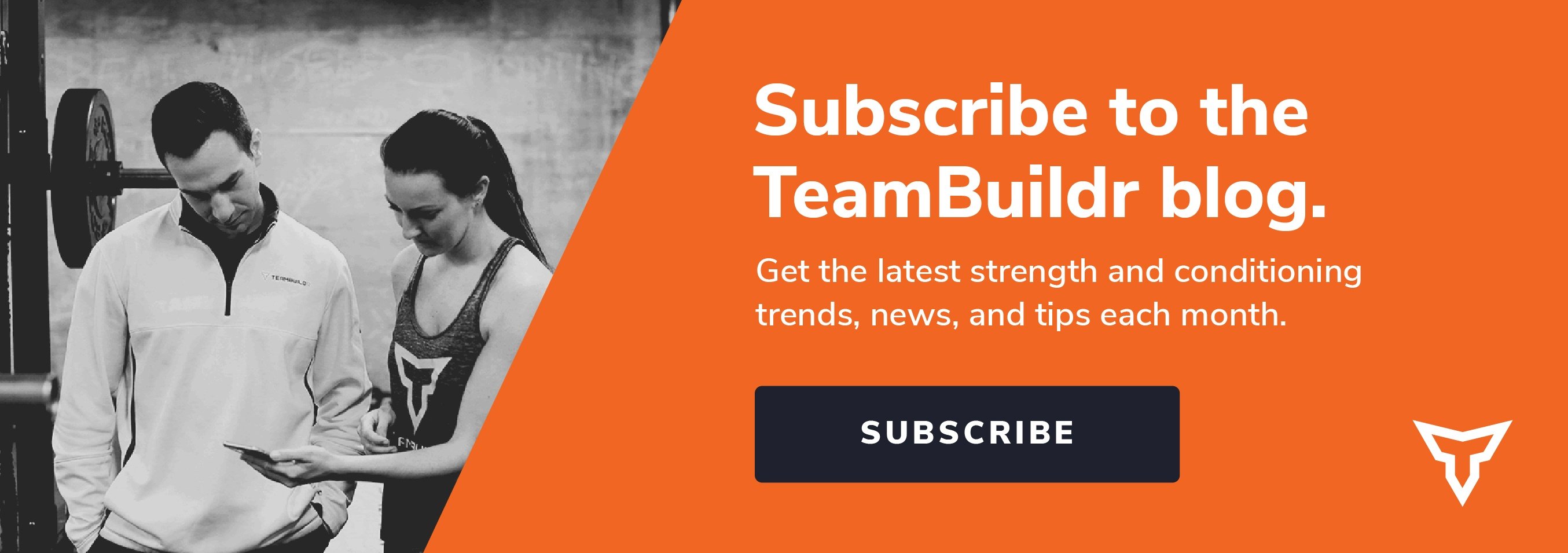Let me preface this by saying that at my first coaching job I was the head strength coach at a small high school, as well as an assistant football coach.
I did not major in exercise physiology or kinesiology and never interned nor worked under anybody; I simply returned to my high school after playing college ball. Because I always loved the weight room and was pretty strong, the school of thought was, “Garrett played college football, he is strong and he loves the weight room...BOOM, perfect strength coach.” Obviously that doesn’t always work out, but luckily enough for me it did. In my second year as a S&C coach I was introduced to the CSCS certification. I purchased all of the study material and set out on my way to become the best strength coach in the country, or so I thought. In my mind all I had to do was earn those four letters behind my name and I’d be on my way. After earning my CSCS, and a couple other certifications, I realized along the way there was a lot more to learn. In my quest to better myself for my athletes I have made plenty of coaching mistakes and I am sharing a few of those so hopefully you can learn from mine instead of making them yourself.
1.Throwing Everybody in the Same Bucket
In the beginning of my career there was a white board on the wall with a single workout for every athlete for that day. If exercise 1 was “Squat” then you back squatted, if it was “Clean” then you power cleaned, if it was “Bench” then you barbell bench pressed. It didn’t matter if you were a 9th grade athlete in the room for the first time or a 12th grade soon to be SEC football player who had lived in the weight room for the past 4 years. The load for those athletes varied based on ability level, but there were no progressions or regressions set up for ability level.
Lesson: Give your athletes what they need based on their stage of development. Be equipped enough to give progressions/regressions based on ability and playing season.
2. Doing What You Have Always Done
As previously stated, I never interned and had never been an assistant S&C coach so I had no idea how to set up a systematic program. I did what anybody would do: Programmed what had been programmed for me as an athlete. Did it matter that young athletes were training in a different development stage than I had? To an experienced coach it would matter, but to an inexperienced coach like me it would not matter at all. The default nature of an inexperienced coach defaults to thinking, "If it worked for me in high school and college, then it will work for them."
Lesson: Just because they CAN do something doesn’t mean they SHOULD. Can a 8th grader back squat before he masters his bodyweight? Sure, but that doesn’t mean he/she should. Think outside of the context of how you trained as an athlete and start with principled fundamentals of training.
3. Staying Comfortable
When I got to the point in my career where I started attending conferences, there was a lack of "approach" that minimized the "return on investment" from attending. Without a big time logo on my chest and few letters behind my name, I felt lower on the totem pole and unable to earn a more experienced coach's time. Over time, I finally realized that the coaches worth meeting would make time to help a young coach and build a relationship with a young coach like myself.
One of the best professional relationships I made in high school S&C was when I introduced myself to Gary Schofield of Greater Atlanta Christian School. Having heard him speak several times, I knew he has well-respected in the field but when I approached him for some advice and clarification, he was incredibly "down to earth" and helpful.
Lesson: Get out of your comfort zone and meet all the coaches you can when attending conferences. The ones who aren’t willing to help you are not usually worth your time anyway.
To give another example, Fred Eaves was one of the coaches that I met through Coach Schofield and that relationship has helped me tremendously. I’ve visited Coach Eaves several times at Battle Ground Academy in Franklin, TN and I’ve been able to pick up several pieces that helped my program design and implementation. The first time meeting Coach Eaves I had decided that the only thing I really wanted to talk to him about was speed development. He helped me with some ideas regarding speed but one of the things he mentioned was the APRE system which was developed by Dr. Bryan Mann. Having been comfortable in my current strength system for years, I was stubborn when being exposed to new systems such as APRE. However, I became bothered from not exposing myself to new knowledge. Since Fred Eaves was a contact, he was able to tutor me in learning a new system that I experimented on with it on myself. Eventually, it was implemented with our athletes who experienced great gains. Originally, I had grown comfortable in my current program and didn’t want to open my mind to a coach who was more accomplished and experienced.
Lesson: Realize that you may not have it all figured out and be willing to listen with an open mind to what others are doing.
4. Copy and Pasting Programs
When I first started training athletes and wanted to implement something new often times I would just copy and paste it into the program calendar. I eventually learned that when dealing with high school athletes plagiarizing a program isn’t the way to go. As a coach, understand that every situation is different. High School coaches should not implement a college program with their athletes, there is simply too much variation in development stages for it to work. You should also refrain from using another high school coach's program; different facilities, different athletes, and different coaching styles are all factors in program design. Each program must be the right fit for its circumstances.
Lesson: I keep a Joe Kenn quote above my desk at work, “Absorb, Modify, Apply." When hearing something new at a conference I take the time to learn about it, modify it to fit my situation and my athletes’ needs, and then figure out if I can or should apply it to the program.
5. Not Staying in Touch With Coaches in My Network
A few weeks ago I started thinking about all the great coaches that I’ve built relationships with over the years and the wealth of knowledge they have. I then asked myself why I don’t call one or email one of them at least once a week and pick their brain. When that crossed my mind I was on a two hour drive and decided that I would call Tobias Jacobi at Strong Rock Christian. Tobias is an incredible coach and a great friend. We talked for a while and I gleaned some great information from him in just a few minutes that really helped put things in perspective.
Lesson: When you build relationships in this industry take advantage of them and continue to reach out and learn from those who are willing to help.
If I can be of any assistance to any coaches feel free to contact me: garrett.keith@wca-hsv.org / 256-527-9400
Subscribe to our blog
Subscribe to receive the latest blog posts to your inbox every week.
Related posts

5 Mistakes Strength and Conditioning Interns Make
%20copy-4.png)
Top 5 Marketing Pitfalls

